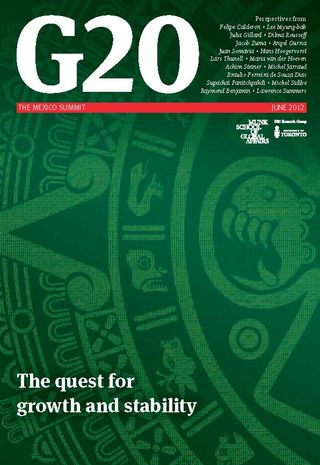?
Russia’s vision for G20 summitry
«Группа двадцати» подтвердила свою способность отвечать на вызовы кризиса. Теперь перед ней стоит задача оправдать ожидания того, что она способна предотвратить глобальные риски, разрешить проблемные вопросы, которые другие международные институты были неспособны решить. Изменение скептического отношения к «Группе двадцати» - длительный процесс. Ожидается, что выдвинутые лидерами стран в рамках мексиканского председательства в «двадцатке» пять приоритетов, будут способствовать финансовой и экономической стабильности, росту и занятости в результате проведения структурных реформ, завершению реформы международных финансовых институтов, укреплению финансового регулирования, обеспечению продовольственной безопасности и смягчению негативного влияния волатильности цен. Обязательства, принятые в ходе саммита и их выполнение странами «Группы двадцати» покажут, насколько оправданы существующие ожидания.
